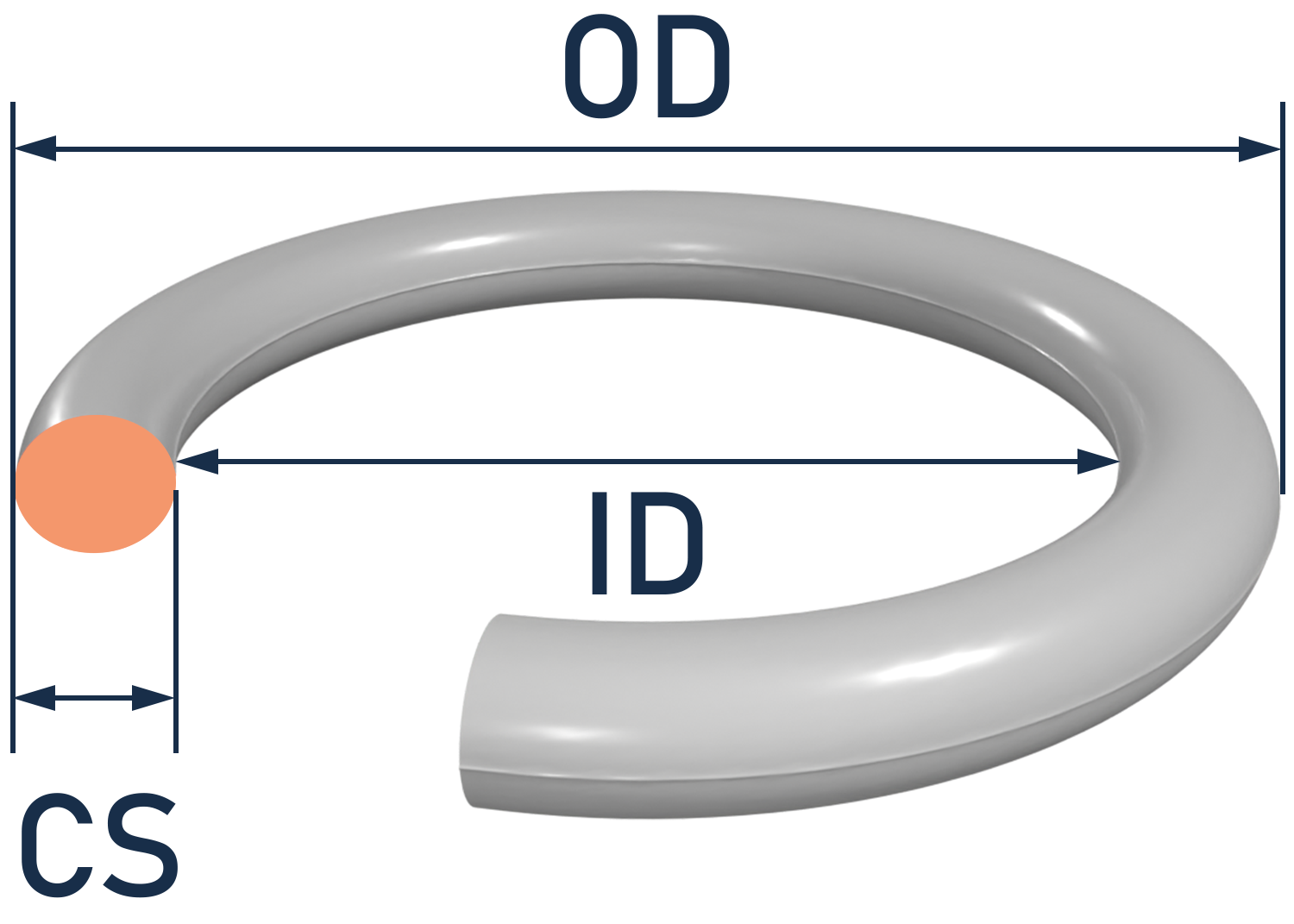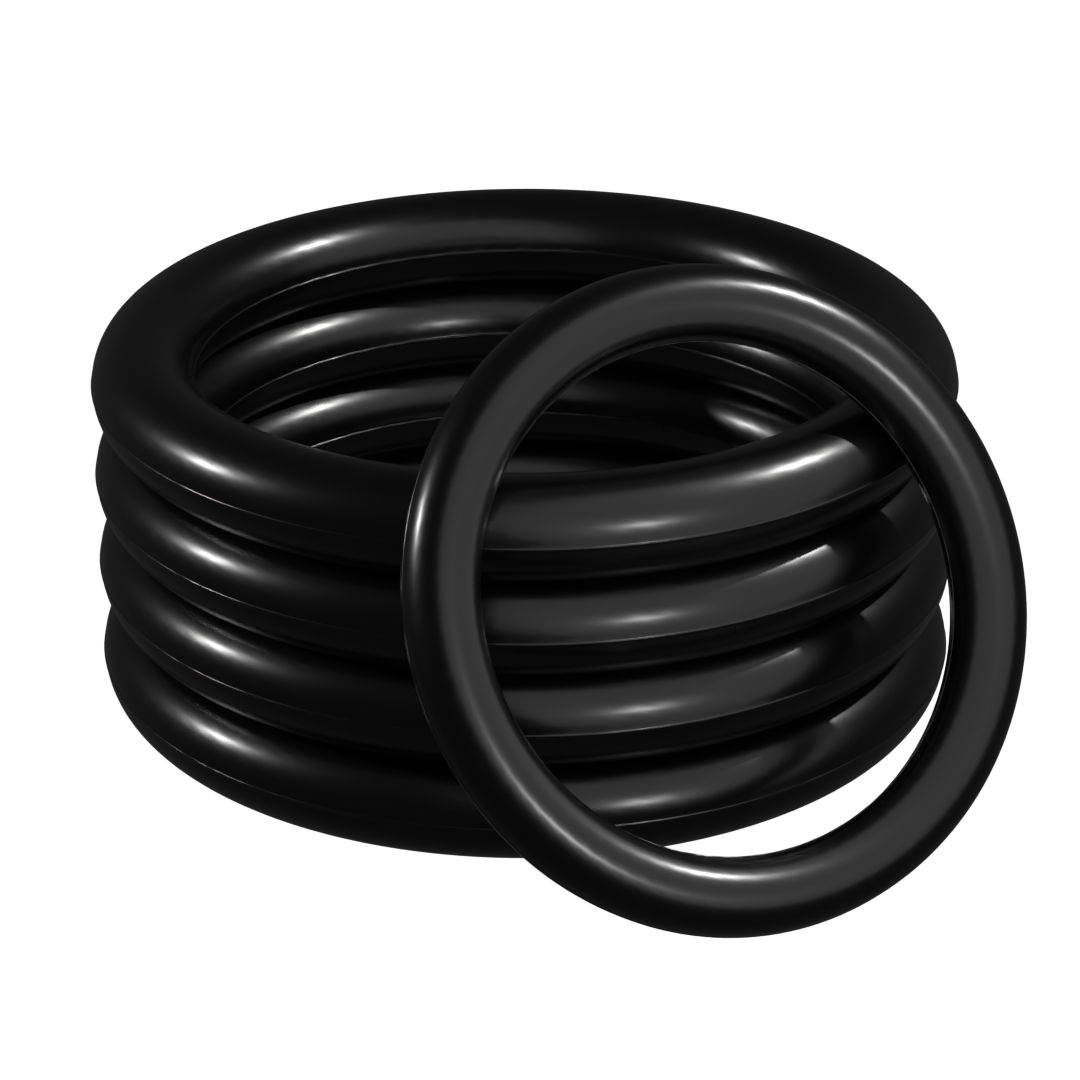
High Temperature Steam Resistant Elastomers
In high-pressure, high-temperature environments where steam is present, not all sealing materials are up to the challenge. Prolonged exposure to saturated or superheated steam can degrade conventional elastomers, causing them to harden, crack, or lose sealing force. That’s why specialized steam-resistant elastomers are essential for O-rings, custom molded parts, and tubing used in demanding applications. Learn more about thermal degradation here.
At Canyon Components, we offer advanced steam-resistant materials including high-performance EPDM, FFKM, and PTFE Spring Energized Seals, engineered to maintain integrity and performance even under extreme thermal and chemical stress.
Check with one of Canyon’s helpful product engineers for an expert material and manufacturing recommendation.

Features of Steam Resistant Elastomers
- High Temperature Endurance: Withstand prolonged exposure to saturated and superheated steam at temperatures well above 150°C—often exceeding 200°C.
- Excellent Compression Set Resistance: Maintain shape and sealing force after repeated thermal cycling and long-term use in steam environments.
- Hydrolysis Resistance: Formulated to resist degradation from moisture and high-temperature water vapor, which can break down many standard elastomers.
- Chemical Compatibility: Withstand common steam system contaminants, including amines, cleaning agents, and glycol-based coolants.
- Versatile Formats: Available as precision O-rings, custom gaskets, and steam-rated tubing, all tailored to your operating environment.
Common Applications
- Steam Valves and Boilers: Seals for steam control valves, boilers, and condensate return systems that experience continuous exposure to high heat and pressure.
- Autoclaves and Sterilizers: Gaskets and O-rings that withstand saturated steam cycles in medical, food, and pharmaceutical applications.
- Chemical Processing Plants: Equipment handling high-temperature fluids and cleaning cycles, including steam-in-place (SIP) and clean-in-place (CIP) systems.
- Power Generation: Steam turbine systems, heat exchangers, and utility-scale boilers require durable elastomers for long-term sealing under load.
- Food & Beverage Equipment: Tubing and gaskets used in steam sanitization or high-temp cooking processes that demand FDA-compliant materials with steam resistance.
Please consult a Canyon Components Engineer about your specific application and we will use our decades of experience to formulate a solution that fits your need.
Get a Quote Now!

High Temperature Steam Resistant Materials Available
This table shows many of our standard materials and links out to our O-ring store. Get in touch with us if you need a custom gasket, custom molded part, or non-standard geometry!
Filter by
Temperature Search (°C)

Pros and Cons of Steam Resistant Elastomers
Canyon Components supplies industry-leading high temperature steam resistant elastomers for critical sealing applications in energy, pharmaceutical, food, and industrial systems. Whether you need FDA-compliant EPDM tubing, FFKM O-rings for chemical sterilization, or PTFE spring energized seals for high-pressure steam valves, our experts can help identify the right solution.
We provide tailored support for material selection, custom part design, and rapid fulfillment—ensuring your equipment stays sealed, even when the heat is on.
Canyon Components strives to meet all customer service requests. Feel free to contact Canyon Components engineering and let our knowledgeable staff help you design the perfect part for your needs.
Pros of Steam Resistant Elastomers
- Resist softening, swelling, and embrittlement under prolonged steam exposure
- Available in food-grade, medical, and industrial formulations
- Withstand both saturated and superheated steam environments
- Maintain performance through repeated thermal and pressure cycles
- Offered in custom parts, O-rings, and flexible tubing configurations
Cons of Steam Resistant Elastomers
- Not all materials offer equal chemical or pressure resistance—selection is application-specific
- High-performance materials like FFKM and PTFE can carry a higher cost
- Some elastomers may degrade in mixed media environments if not properly selected
- Specialized steam-grade compounds may have longer lead times due to formulation complexity
Back to Elastomers Hub

Get A Quote Now!

